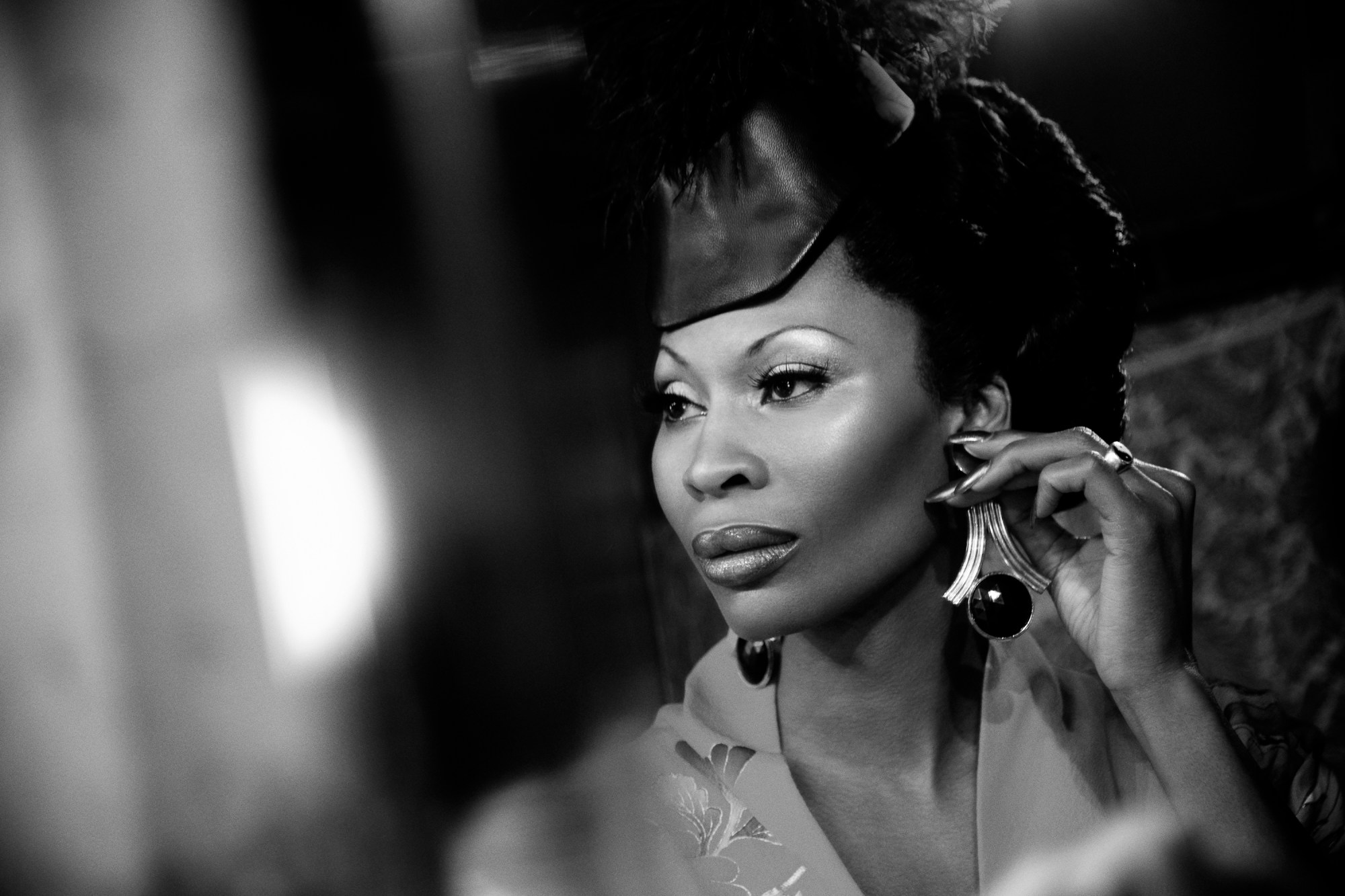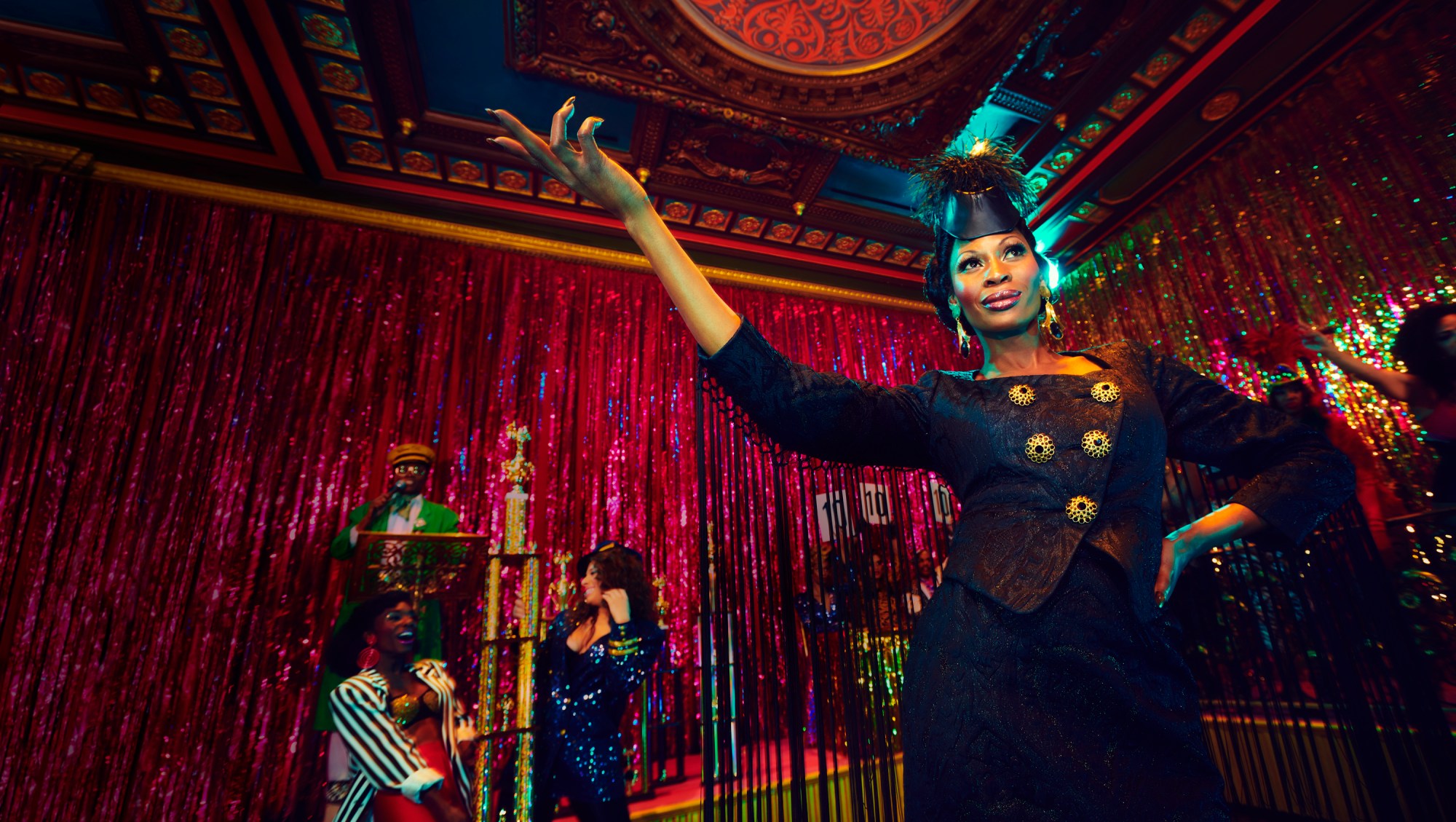In the first episode of Pose, house mother Elektra Abundance turns to her unprepared dancers and asks: “What are we gonna do, walk down to Burger King and get some paper crowns?”
It may sound like a lighthearted joke, but this is no dress rehearsal. These are the queens of Pride.
The iconic actresses of this transgressive FX series—Dominique Jackson, MJ Rodriguez and Indya Moore—are now going to strut in the most epic way possible as the grand marshals of New York’s Pride Parade on June 30, which marks the 50 th anniversary of the Stonewall riots.
The Pose cast are walking alongside Phyll Opoku-Gyimah, the UK Black Pride co-founder, and activist Monica Helms (who designed the trans pride flag), and more.
Jackson, a trans model from Tobago, made her way to New York in the 1990s and found solace in the ballroom scene. After writing her autobiography, The Transsexual from Tobago in 2014, she joined the Slay modeling agency, starred on Whoopi Goldberg’s reality show Strut before getting the leading role in Pose, where she and her co-stars won a GLAAD Award for outstanding drama series.
Jackson is inspiring. She has not only overcome homelessness, abuse and discrimination but is continuing to thrive, while giving strength to others. While on set shooting season two of Pose (which premieres June 11), Jackson spoke to us about following your inner voice, survival instincts and the essence of feeling beautiful.
How did you first find out that the Pose cast are the grand marshals of the Pride parade?
It was through email that they asked me and I thought it was spam or something. It turned out to be real. First off, I never thought someone like myself could ever turn out to be a grand marshal at a Pride parade in New York City, one of the largest in the world. I found it to be too much of an honor to someone like me, being trans, being from the Caribbean, I just thought there were so many other trans people that might have done more for the community. It was a really great honor; I was overwhelmed with joy.
What does the 50 th anniversary of Stonewall mean to you?
It has been 50 years since the Stonewall riots and trans women are now getting some visibility. We were the ones that were there at Stonewall. It was because we couldn’t be ourselves during the time of the Stonewall riots. But it wasn’t a riot, it was a rebellion because people were saying “no more.” People weren’t destroying stuff just because something that was happening. Marsha P. Johnson and Sylvia Rivera were saying “We’re not going to be arrested and taken to jail for nothing anymore and we’re not going to be treated as less than.” It took almost 50 years for trans women to be seen on TV and write books and be published in magazines, all this stuff. I am still thinking about what to wear, the significance of it. It also has to be symbolic of me, my journey and how much I’m honored to be there.
How do you feel about how far we still have to go with trans rights in other parts of the world?
We’re always fighting for our rights, that’s a bitch. What does sexuality or gender have to do with it? That’s crazy. Being the co-grand marshal of Pride, we are not only speaking to the world, but to the LGBT community also, they have to step up and recognize us, too. Its not up for debate anymore. Its what the world considers an ‘alternative lifestyle’ but we’re just human beings, but as part of society, we have to identify under certain categories. Trans people should be afforded the same rights as any other human being.
How did you find a sense of community in the ball scene in New York?
Yes, the ball scene saved my life. I found out about the ball scene when I was living in Baltimore, before I even came to New York. It was because of the ballroom scene that I came to New York and despite all the struggles I had to endure, it was because of the ballroom scene that I was able to stay in New York.
How inclusive was it?
Well, the ballroom scene has always been a place where, if you’re a person of color and you’re looking for a home, this is a place where you’re found. The ball scene took me in. I was in Baltimore when they saved me, they gave me a place to stay and even though it was eight people to a one-bedroom apartment in 1993, it was still a great time for me because I was discovering myself. Does the ball scene still provide that today? Now, there are more people who can reach it and reach people in the scene through social media.
For where you are in your career as a TV star, host and book author, you had to overcome a lot of rejection and pain. What kept you going in tough times?
What kept me going was that I refused to fail. I did not think that I was put on this earth to be homeless, I didn’t think I had to suffer. That is one thing that kept me going, I was determined to show myself that who I am is not an abomination. Doing that was very difficult; racism, rape, discrimination, all kinds of things. Every time I felt like giving up, there was an inner voice that said to me “you have to keep going, this is just a lesson for you to learn.” I thought to myself, what a number of lessons for a human being to learn.

How have your own experiences helped you give back to others?
As I was sitting at my desk as the director of programs at the LGBT and trans non-profit Destination Tomorrow in 2017 (which is now the Bronx LGBT Community Center), that is when I realized that the trauma that I faced was so important for me to do the job I now had because I was able to relate and I was able to listen. I was sitting in front of trans women and understanding the issue they faced. When they were talking about homelessness, rape and molestation, I was able to relate to them and bring them to a point where the person in front of them was someone who lived it. That helped me realize my traumas were for a purpose, even though they were terrible. It also helped for the role I play on TV today. The strength to live through them, the many nights I spent crying, that the next day wouldn’t come to me, every morning the son opened my eyes and I knew I had to keep fighting.
How are you inspired to give back and help people?
I lived some stuff that was horrible and I don’t think that anyone should have to live that. If I can help them escape it, or if they are living it, to let them know that they can get through it by seeing the work I have done.
The second season of Pose is coming up, what has been its impact in your own life?
I’m just working 15 hours a day and loving it. People have to tune in because Pose has become one of the most authentic and true to heart shows on TV today. I’m not just saying that because I’m on it. In my experience, people are starting to see themselves, they’re starting to realize that people of LGBTQI+ identifications are human beings, too. We go through the same issues—homelessness, the want for love, to be able to work, all these things. We’re basically the same. People are just starting to realize its not about gender and race or religion, its about humanity. It’s about human beings, not sex. We’re human beings first.
I was reading in a recent interview that you had to learn to love yourself and think that you’re beautiful, how do you feel about that today?
Today, I feel my most beautiful. I have embraced being beautiful and love being beautiful because its not about an aesthetic. It’s about that inner feeling of knowing that you are happy with who you are and understand there will be struggles in life and you have the strength to get through them.
